The institutional agreement between Switzerland and the EU will not happen
On 26 May 2021, a seven-year negotiation process, in which the pitfalls always outweighed the opportunities, came to an end amidst ups and downs…
At its meeting on 26 May, the Federal Council subjected the results of the negotiations on the Institutional Agreement to an overall assessment and found that there were still substantial differences between Switzerland and the EU in a number of key areas.
In its view, the conditions for the conclusion of the agreement have not been met. It has therefore decided not to sign the agreement and has communicated this to the EU on the same day. Thus, the negotiations on the draft agreement have come to an end.
However, the Federal Council is of the opinion that it is in the common interest of Switzerland and the EU to preserve the proven bilateral path and to continue the existing agreements with conviction. For this reason, it intends to initiate a political dialogue with the EU on the continuation of cooperation.
At the same time, it has instructed the Federal Department of Justice and Police to examine how bilateral relations can be stabilised through possible autonomous adjustments to national legislation.
#BREntscheid Der Bundesrat hat entschieden, das Institutionelle Abkommen Schweiz–EU nicht zu unterzeichnen. In zentralen Bereichen bestehen wesentliche Differenzen. Er hat dies der EU heute mitgeteilt. Die Verhandlungen sind somit beendet. (BK) @EDA_DFAE
— André Simonazzi (@BR_Sprecher) May 26, 2021
Three insurmountable obstacles on the road between Bern and Brussels
The talks with the EU did not lead to the solutions Switzerland needed in the areas of the directive on the free movement of EU citizens, wage protection and state aid.
In particular with regard to wage protection and the above-mentioned directive (see appendix “Results of talks between Switzerland and the EU on points to be clarified: wage protection, directive on the free movement of EU citizens and state aid”) substantial differences remain.
The points mentioned represent important interests for Switzerland. Without the desired corrections, above all, the protective effect of the accompanying measures currently in force would not be guaranteed.
In the event of a possible transposition of the directive on the free movement of EU citizens into the Agreement on the Free Movement of Persons (ALC), certain exceptions must be explicitly stipulated, without which there is a risk that the rights of persons benefiting from free movement will be extended, which could also have an impact on social assistance costs.
“EU market access if it serves Swiss competitiveness”
Full implementation would in fact amount to a paradigm shift in migration policy, which enjoys wide acceptance among the population and the cantons.
The Federal Council intends to defend these essential interests and, considering that the conditions for concluding the Agreement are not met, has therefore decided not to sign it.
The President of the Confederation, Guy Parmelin, informed the President of the European Commission, Ursula von der Leyen, of this decision in writing on May 26. This brings to an end the negotiations with the EU on the draft institutional agreement.
Before taking this decision, the Federal Council consulted and heard the Foreign Policy Committees of the Federal Assembly and the cantons.
The social partners were also informed. The results of these discussions were incorporated into the decision of the Federal Council.
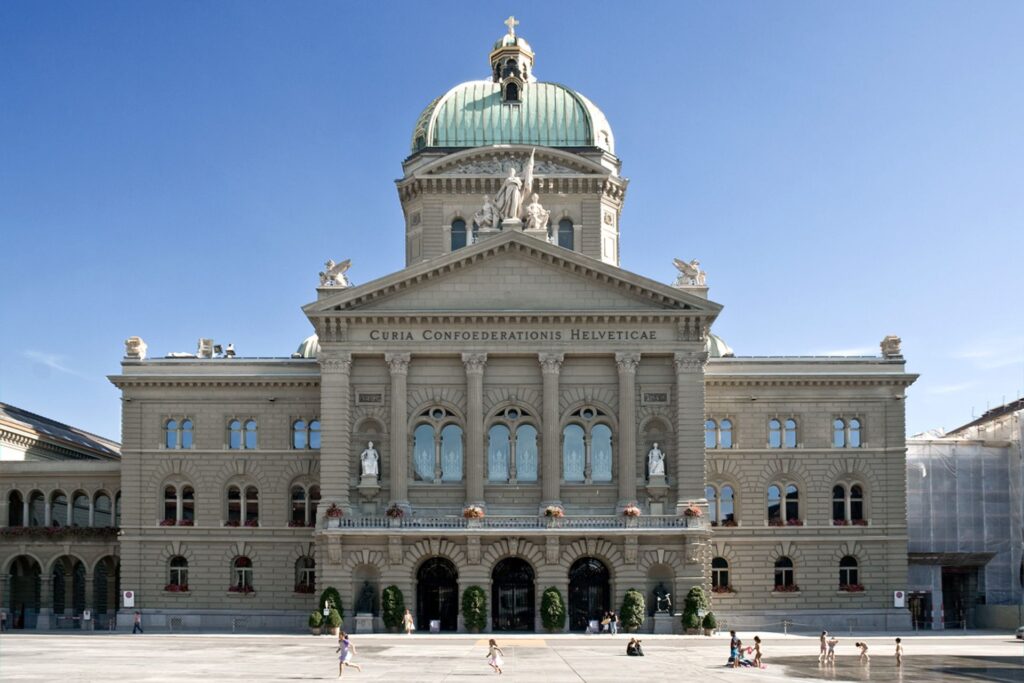
Need for clarification that did not produce the desired result
The purpose of the Institutional Agreement was to ensure that Switzerland would continue to have access to the internal market of the EU in the future and to permit its further expansion.
The agreement would have represented a radical change in relations between Switzerland and the European Union. The principle of dynamic implementation of the law would have been introduced in the context of market access agreements.
The establishment of a dispute settlement procedure by means of an arbitration court was also envisaged. The Court of Justice of the European Communities would be involved where it was necessary to interpret EU law.
Three degrees of separation between Switzerland and the European Union
With its 2013 negotiating mandate, the Federal Council aimed to safeguard the accompanying measures for the future and to exclude the possibility that Switzerland would be obliged to transpose the directive on the free movement of EU citizens into the FTA.
In the draft agreement of November 2018, however, these points were not regulated at all, or not adequately. For this reason then, the Federal Council refrained from paraphrasing the Agreement and initiated internal political consultations.
The consultations revealed the need for clarification in the two areas mentioned above as well as in the area of state aid.
The demands made of the EU on these three points enjoyed broad internal political support and were supported by the cantons, the social partners and the majority of the parties.
#DécisionCF Le Conseil fédéral a décidé de ne pas signer l’accord institutionnel entre la Suisse et l’UE. Il reste des divergences substantielles sur des points centraux. La décision a été communiquée à l’UE. Les négociations sont terminées: (BK) @EDA_DFAE
— André Simonazzi (@BR_Sprecher) May 26, 2021
Substantial talks with the EU between November and January
At its meeting on 11 November 2020, the Federal Council clarified its position on the three points to be clarified.
The cantons and the social partners were involved in the drafting process and, on this basis, talks with the EU were initiated.
Since January 2021, six rounds of negotiations have taken place in addition to a number of other contacts between State Secretary Livia Leu, Switzerland’s chief negotiator, and Stéphanie Riso, Deputy Head of Cabinet of the President of the European Commission Ursula von der Leyen.
Direct access to EU databases for the Swiss police
At these talks, State Secretary Livia Leu was accompanied by State Secretary Mario Gattiker (State Secretariat for Migration SEM) or State Secretary Marie-Gabrielle Ineichen-Fleisch (State Secretariat for Economic Affairs SECO), depending on the topic to be discussed.
Switzerland submitted written proposals with concrete requests and also explained its positions orally. It also systematically responded to concrete proposals from the EU in a clear manner.
The talks made it possible to improve mutual understanding of the respective positions, which nevertheless remained distant in terms of content.
In order to take political stock of the negotiations, the President of the Swiss Confederation, Guy Parmelin, and the President of the European Commission met in Brussels on April 23, 2021.
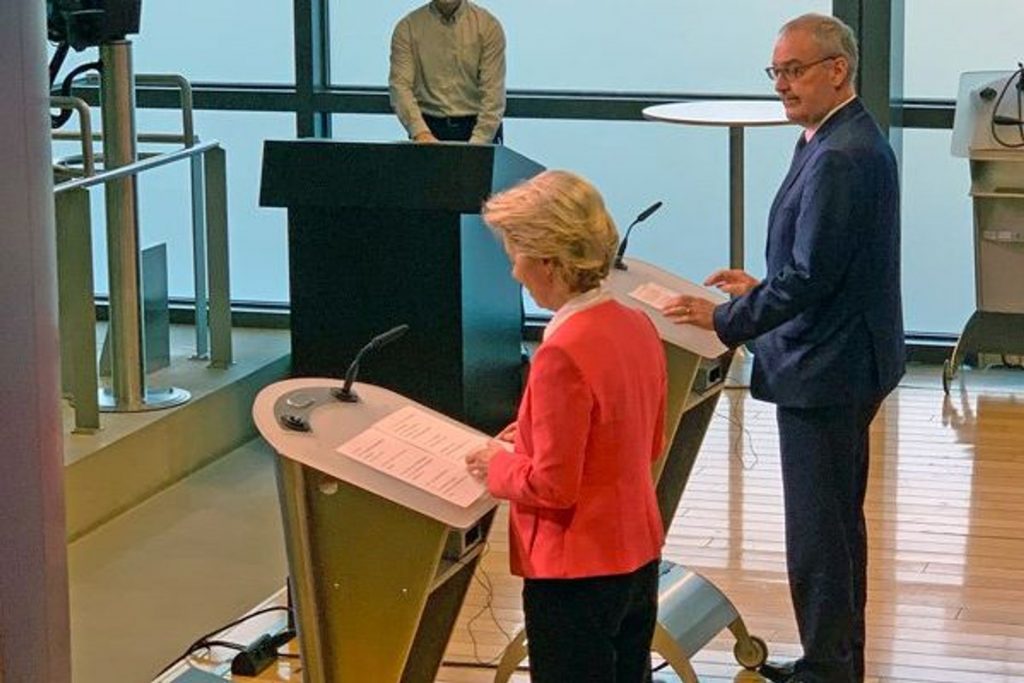
Mitigation measures, especially in the biomedical field, are underway
The decision not to sign the Institutional Agreement marks the end of a seven-year negotiation process during which the Federal Council has constantly evaluated the progress made and defined, if necessary, the new steps to be taken.
The Federal Council is aware that the non-conclusion of the Agreement will also bring with it negative effects, as it has already communicated on several occasions.
For example, the EU has stated on several occasions that it is not prepared to conclude new market access agreements in the absence of an institutional agreement.
However, the Executive believes that it is in the interest of both sides that existing agreements (such as the one on Technical Barriers to Trade [MRAs], as far as medical devices are concerned) continue to be updated and that no irrelevant policy links are established involving, for example, research cooperation or equivalence of exchanges.
Salari minimi vincolanti per i lavoratori distaccati dall’UE
It is also counting on cooperation in proven areas such as healthcare and electricity not being shelved.
In order to mitigate the negative consequences, the Federal Council has long since begun to plan and partially implement mitigation measures aimed at containing the damage, including the measure to protect the infrastructure of the Swiss stock exchanges activated in June 2019 with which Switzerland reacted to the withdrawal of equivalence recognition by the EU.
In the area of medical devices, the Federal Council has already taken unilateral measures to ensure security of supply and market surveillance even in the absence of an update to the relevant chapter of the MRA.
#DecisioneCF Il Consiglio federale ha deciso di non firmare l’accordo istituzionale fra Svizzera e UE. Rimangono divergenze sostanziali su settori chiave. La decisione è stata comunicata all’UE, mettendo così un termine ai negoziati (BK) @EDA_DFAE
— André Simonazzi (@BR_Sprecher) May 26, 2021
The common path is the continuation of the bilateral path
According to the Federal Council, it is in the common interest of Switzerland and the EU to continue the tried and tested bilateral path even without the conclusion of an institutional agreement.
The cooperation is based on a complex of more than 100 bilateral agreements. With its 27 member states, the European Union is Switzerland’s most important partner. Switzerland, for its part, is one of the EU’s most important trading partners: fourth for trade in goods, third for services and second for investments.
The EU’s trade balance also shows a surplus estimated at tens of billions of euros. There are 1.4 million EU citizens living in Switzerland, in addition to approximately 340,000 EU border crossers and well over 200,000 persons per year subject to reporting from EU/EFTA states.
Online trade: more customs security between Switzerland and the EU
Switzerland shares the values on which Europe is based and is committed alongside the European Union to addressing global challenges, in particular climate protection, the promotion of human rights, peace and security, and the fight against poverty.
Together with the EU, it works to strengthen cooperation in the areas of health, environmental protection, regional development and digitization, and shows solidarity with the Union in migration issues.
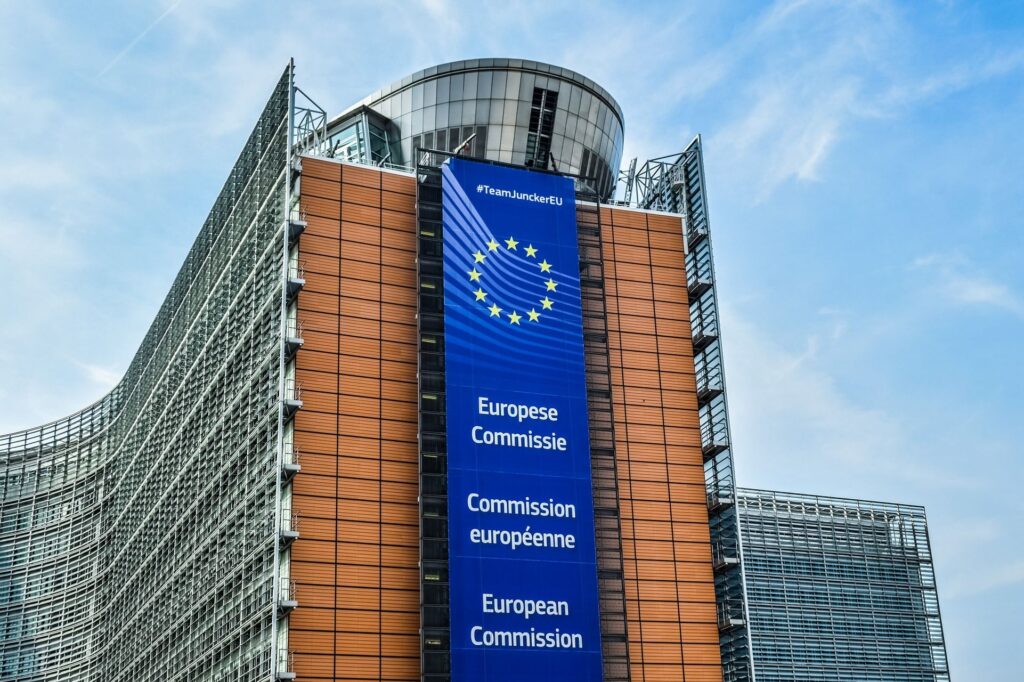
No lack of political dialogue for a common agenda
Even without an institutional agreement, Switzerland remains a reliable and committed partner of the EU and makes a constructive contribution to a well-functioning collaboration that continues to be in the interests of both parties.
With regard to the second Swiss contribution, the Federal Council will ensure that Parliament releases the funds as soon as possible and that the memorandum of understanding with the EU is finalized quickly.
In Switzerland the first truck equipped with the “EU Telepass”
The Executive also intends to maintain and – where possible and in mutual interest – expand the partnership with the European Union through bilateral treaties.
It therefore proposes to the EU to initiate a political dialogue in order to develop and implement a shared agenda on future collaboration and aims to seek to solve specific problems together, thus ensuring the smoothest possible implementation of existing agreements.
Autonomous examination of Swiss legislation to be “stabilized
The Federal Council has instructed the Federal Department of Justice and Police (FDJP) to examine, in cooperation with the other departments, the possibility of autonomously adapting national legislation in order to stabilize bilateral relations.
The Federal Office of Justice will identify current divergences between EU law and the Swiss legal system and clarify where legal harmonization could be useful and of mutual interest. This will be an autonomous process involving the social partners and the cantons.
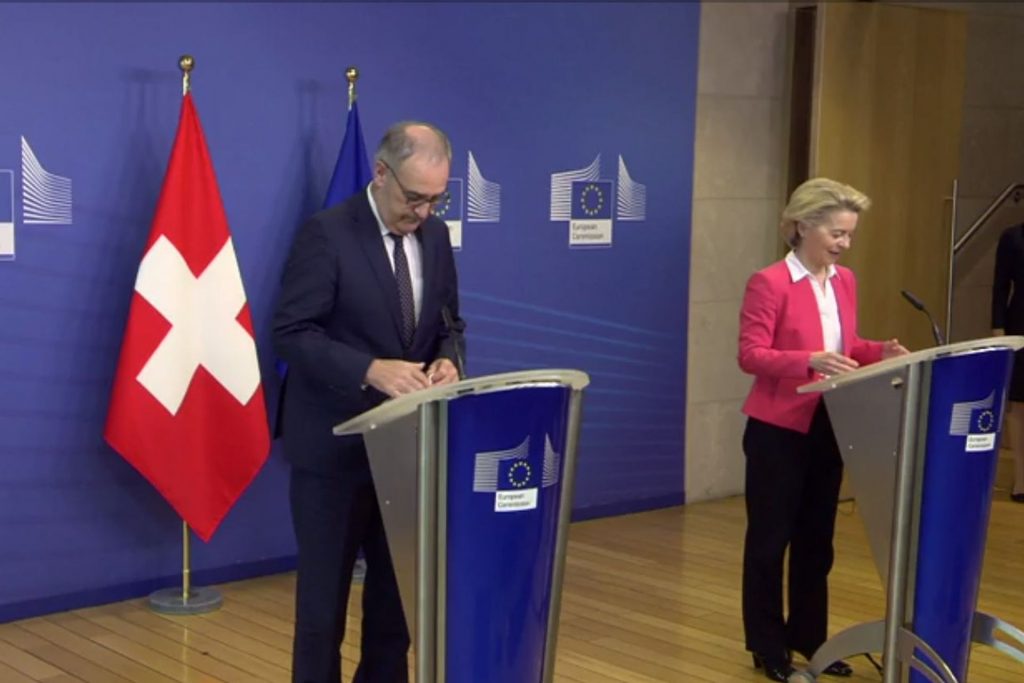






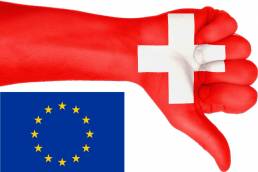
Well done!